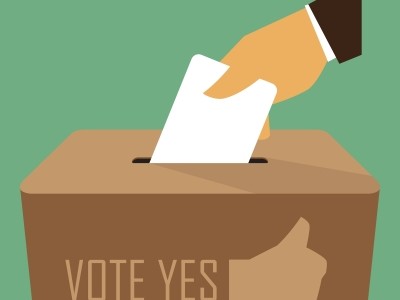
Danish Prime Minister Helle Thorning-Schmidt on Wednesday called a general election for June 18, even as opinion polls show her centre-left coalition trailing the opposition.
“Denmark is back on track, we are out of the crisis… It’s time to ask the Danes if they want to maintain this direction,” said Thorning-Schmidt, who under election regulations had to call a vote to be held by September 14.
“I want all of Denmark with (me). The growth must benefit everyone,” she added.
Denmark was badly hit by the financial crisis of 2008, which caused the country’s property bubble to burst.
Since taking office in 2011, Thorning-Schmidt’s Social Democratic-led government has overseen a sluggish economic recovery that only recently began gathering pace.
On Tuesday, the government raised its economic growth forecast for 2015 to 1.7 percent from a previous estimate of 1.4 percent, and maintained a two-percent growth estimate for next year.
A public opinion poll by news agency Ritzau released on Monday showed the government and its allies in parliament credited with 45.6 percent of voter support, compared to 54.3 percent for the opposition, which includes the anti-immigrant Danish People’s Party (DPP).
A weighted average of five polls gives the opposition a slightly narrower lead of 6.5 percentage points, according to the news agency.
– Controversial moves –
The 48-year-old premier, who is married to British Labour Party MP Stephen Kinnock, has been unpopular with voters for much of her tenure after implementing what many viewed as a right-wing programme.
Some of her more controversial moves have included cutting corporate taxes, rolling back unemployment benefits and selling part of state energy utility Dong to a US investment bank.
Ahead of the election she has already pledged to spend more on welfare than opposition leader Lars Loekke Rasmussen, head of the right-of-centre Venstre party, which says it wants to improve public services without growing one of the world’s most generous welfare states.
Rasmussen, who is unpopular with voters after a string of spending scandals, was prime minister from 2009 to 2011. He replaced Anders Fogh Rasmussen (no relation) when the latter was appointed secretary general of NATO.
The right-wing bloc would need the support of the anti-immigrant Danish People’s Party (DPP) to pass legislation in parliament.
Some opinion polls have shown the DPP, which wants to tighten immigration rules and raise public spending, garnering more votes than Venstre.
Support for the DPP has been bolstered by rising numbers of asylum seekers from Syria — even though they remain relatively low compared to neighbouring Sweden and Germany — and fears that cheap labour from eastern Europe could undermine the Danish model of collective wage bargaining.
In a bid to win back some of the working class voters who have left her party for the DPP, Thorning-Schmidt likened the opposition leader’s plans to freeze welfare spending to an “experiment”.
“The opposition wants a different path. Here each free krone will go to questionable tax cuts,” she said.
Still, analysts said the election would have little impact on Denmark’s economic recovery.
“One of the strengths of the Danish economy is that there is a high degree of consensus about economic policy,” Sydbank economist Peter Bojsen Jakobsen wrote in a note to investors.
“We therefore do not expect the outcome of the election to have any significant effect on the development in the Danish economy,” he added.



